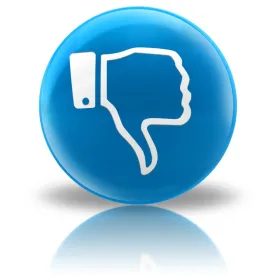Last Friday’s Law Blog at the Wall Street Journal zeroed in on some of the strategies attorneys are using to defend themselves against negative reviews on the popular review site Yelp. One of these, not surprisingly, is litigation.
The article noted one Austin law firm that sued a former client for posting false and disparaging remarks on Yelp. In Georgia earlier this year, an appeals court upheld a $405,000 verdict against a former client of a divorce attorney who had called the attorney a crook on Yelp.
However, there are more instances of attorneys being reprimanded for inappropriate responses to negative review than there are victories for the disparaged in a court of law. Most of the reprimands are for revealing confidential client information in responses to bad reviews
Two California bar associations -- L.A. and San Francisco -- have tackled the ethics of refuting online reviews, finding that responding to a review from a client whose matter has concluded is not barred, but that the response should be “proportionate and restrained” and not disclose any confidential client information.
Dallas litigator John G. Browning penned a piece for the July issue of the Texas Bar Journal on this issue, calling it “a new ethical trap for lawyers.” He recommends that attorneys follow the advice of my friend Josh King, general counsel at Avvo.com, who has counseled that attorneys can turn a negative review into a positive marketing opportunity this way:
“By posting a professional, meaningful response to negative commentary, an attorney sends a powerful message to any readers of that review. Done correctly, such a message communicates responsiveness, attention to feedback, and strength of character. The trick is to not act defensive, petty, or feel the need to directly refute what you perceive is wrong with the review.”
As Browning notes, “When responding online to a negative posting, you’re not just responding to one former client but to a reading audience of many potential clients.”




 />i
/>i

